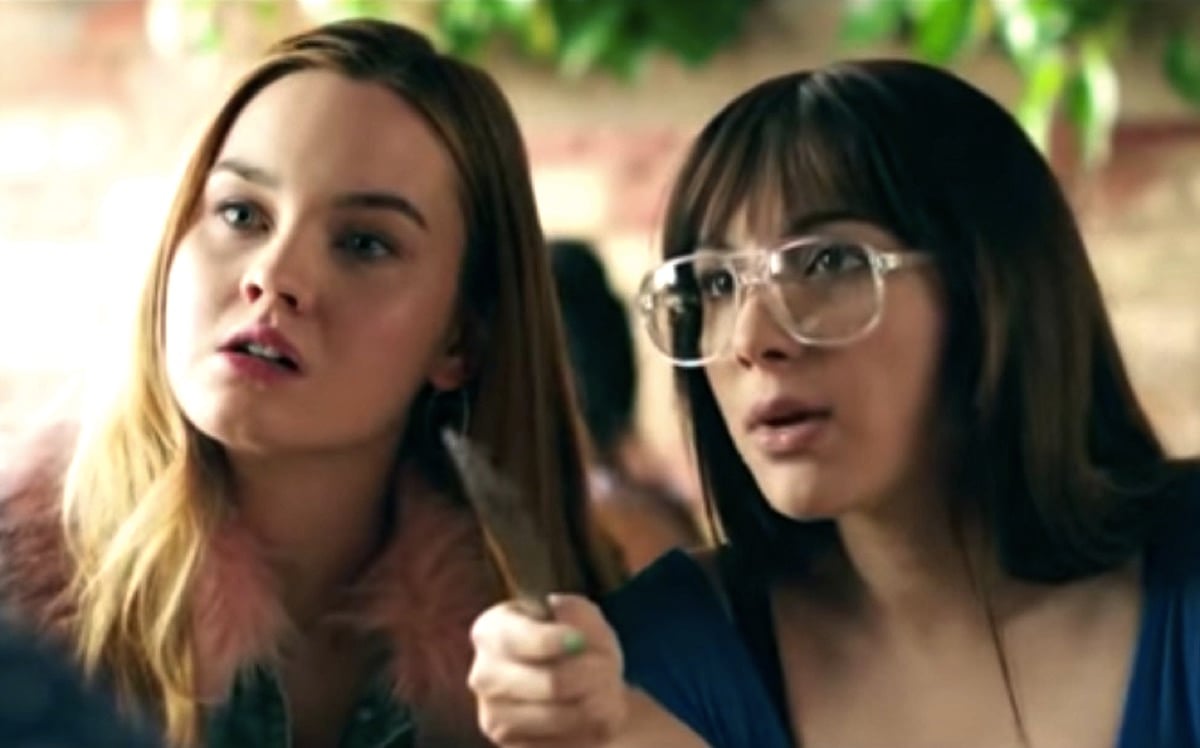Available tomorrow digitally On Demand.
Banana Split is cinematographer Benjamin Kasulke’s first feature film, and it feels surprisingly fresh for such a popular genre. While following the intertwining love lives of three teenagers may seem like an overused plot device, it’s the relationship formed between the female leads that makes it move forward from any established coming-of-age lens.
Banana Split has a rough start, as Nick (Dylan Sprouse) and April (Hannah Marks, who also cowrote the script) begin as friends and awkwardly establish that they want to be more. The first several minutes of the film are just images of them making out everywhere and having sex on the beach, but this rose-colored view of romance is quickly broken as the couple begins to fight; they get accepted to colleges at opposite ends of the country, and their two-year relationship comes to an end.
What follows is April, depressed post-breakup, trying to navigate her last Los Angeles summer before going off to college. She soon finds out from stalking Nick’s Instagram that he has already seemingly moved on with a new girl. In the aftermath, April forces herself to try to go to a party with her friends, but Nick and his new girl, Clara (Liana Liberato), are all she can think about—and just her luck, Clara is actually at that same party. Clara introduces herself to a cold April, but surprisingly, they end up doing shots and bond over their knowledge of a rap song’s lyrics. At the end of the night, Clara holds April’s hair while she pukes—a friendship is born.
Banana Split, a clever name for the love triangle between these three vanilla scoops, is an exploration of a complicated yet genuine female friendship that’s rare to see in a film of the genre. Often, as women, and maybe even men, can relate, we are made to feel like we have to hate our ex’s new partner, as though there’s a social construct that dictates we aren’t allowed to associate with them—or if we do hang out with one or the other, it’s a betrayal of some kind of unwritten code.
It’s refreshing to see a film that doesn’t follow those “rules.” They forget about Nick, and so does the audience, as for most of the second half, the pair focus most of their energy on each other. April and Clara go thrifting, play arcade games, go to the movies, and have sleepovers. (I started to wish they were dating instead.) Their relationship gets messy as feelings start to get in the way, but the narrative never veers away from its message that the bond of friendship is stronger and more important than one with any boy (or any partner).
Banana Split doesn’t always stick the landing in terms of humor—some jokes I would deem insensitive—but it rides on heartfelt performances by Marks and Liberato. Their chemistry together is so strong that the scenes where they’re not together feel wrong; they’re two sides of the same “BFF forever” split heart. Sprouse is solid and a charmer, but it’s hard for any man in the cast to make a strong impact with those ladies around.
Spider-man’s Jacob Batalon is always a welcome appearance, playing April’s manager at her movie theatre job, and one standout is Addison Riecke as April’s sassy and crude little sister, Agnes. Banana Split isn’t a perfect film, but holds some surprises. Many heterosexual teen films traditionally end with the girl getting the boy, but writers Hannah Marks and Joey Power emphasize the importance of women having their girls.
(image: Warner Bros.)
Want more stories like this? Become a subscriber and support the site!
—The Mary Sue has a strict comment policy that forbids, but is not limited to, personal insults toward anyone, hate speech, and trolling.—









Published: Mar 26, 2020 10:33 am